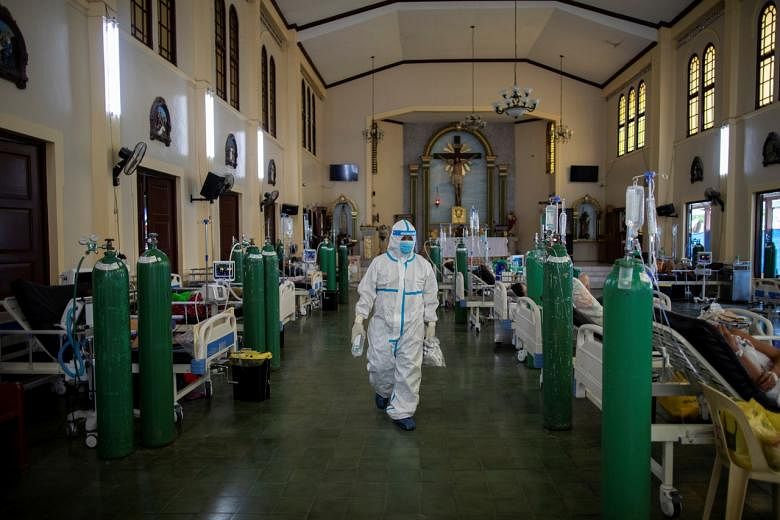MANILA - The Philippines is again easing quarantine restrictions across its sprawling capital region from Wednesday (Sept 8) - switching to targeted curbs as a new tactic against the extremely contagious Delta variant that is fuelling record surges in Covid-19 infections.
"Experts believe granular lockdowns will be more effective," Mr Harry Roque, President Rodrigo Duterte's spokesman, said in a news briefing on Monday.
"We've seen that even although we're on (sweeping lockdowns), the cases don't seem to be going down," he said. "Although projections say we're on track (to bringing the numbers down), they're still high."
Mr Roque said Metro Manila - home to some 13 million, or over a 10th of the nation's population - would be under the more relaxed "general community quarantine" from Wednesday till the end of the month.
But there would be places in the capital region that would be placed under "total lockdowns".
"This means no one can go in and out during the duration of the granular lockdown." People will not be allowed to leave their homes even to buy food or medicine.
"The government will provide for their needs," Mr Roque added.
He said a task force overseeing the government's response to the pandemic would later identify "pilot areas" for this new tack.
"It does not have to be an entire district. It can be a street, a house or a community. It should be as granular as we can (be)," he said.
Quarantine restrictions will be relaxed for most of the 16 cities that make up Metro Manila, to balance containing the pandemic and supporting the economy.
This means dining in restaurants will again be allowed, but for just a few diners. Barber shops, salons, spas and other personal care services can also reopen, as well as churches.
But most public places will remain closed, and shelter-at-home restrictions will still be in place, except for essential workers and those essential items.
This comes as the Philippines logs over 20,000 new infections for a third straight day. With over two million Covid-19 cases and some 34,000 who have died, the Philippines has the second-worst outbreak in South-east Asia.
Independent researchers say the official numbers seem way too low, and do not reflect reality on the ground.
They also worry that while "granular lockdowns" may look good on paper, these could tax resources of local governments and create leaks in the way these would be implemented.
"It will be manpower-intensive. If you close down a street, you need local community employees to watch over that area. They will also need to distribute food," said Professor Guido David, a senior fellow with the Octa Research group.
But if the coronavirus is spreading across an entire city, there may not be enough people who can be mobilised to cover all of its districts.
The health ministry has forecast that cases in Metro Manila alone could go past 30,000 a day this month, considering that current measures seem to have failed to contain the spread of the Delta strain.












